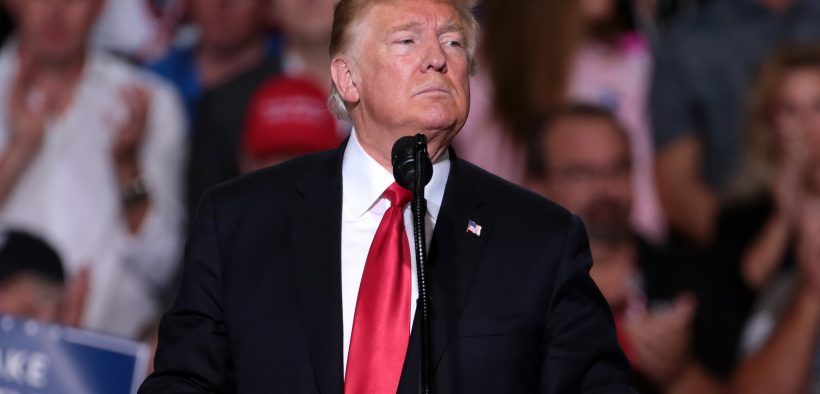Trump’s ‘Wealth Test’ Targeting Low-Income Immigrants Takes Effect

“The effects of today’s Supreme Court decision on the ‘public charge’ rule will be devastating. Because of the ‘public charge’ rule, families are already going hungry and people are avoiding needed medical care.”
A redefinition of the public charge, a controversial change that restricts immigration for many potential immigrants, took effect on Monday. It is another win for President Donald Trump in his efforts to restrict legal immigration to the United States.
The Supreme Court lifted the last injunction in Illinois paving the way for the hardline immigration policy. In her dissenting opinion, Justice Sonia Sotomayor said, “the Court … has been all too quick to grant the Government’s ‘reflexive’ requests. But make no mistake: Such a shift in the Court’s own behavior comes at a cost.”
The anti-immigrant measure redefines the ‘public charge’ test, empowering Department of Homeland Security officials with a greater ability to reject applications based on a variety of factors. With the new regulation, officials will be able to deem potential immigrants a “public charge” if they suspect they would be using any of a variety of social programs including SNAP food stamps, Section 8 housing vouchers, or Medicaid benefits.
In determining the public charge of an applicant, DHS officials will consider applicants’ age, assets, education, English skills, and health among other factors.
The rule applies to all immigrants applying for green cards and temporary visas for work and travel.
While proponents of the change argue it builds upon precedent, opponents say it disproportionately targets poorer immigrants from non-Western countries.
In a January statement, California Governor Gavin Newsom said, “the effects of today’s Supreme Court decision on the “public charge” rule will be devastating. Because of the “public charge” rule, families are already going hungry and people are avoiding needed medical care.”
Chilling Effect
The rule change has already impacted more than just immigrants seeking to gain entry to the United States.
A study from the Urban Institute found that 13% of immigrant adults reported they avoided benefit programs in 2018 due to fear of the potential change in the public charge rule. This number rose to 20% for low-income immigrant families.
The change only affects applicants seeking a green card or visa for the first time, but nonetheless these chilling effects have already wreaked havoc on immigrant communities.
Both immigrant advocates and medical professionals have denounced the rule because it negatively impacts many immigrants already in the country.
In this respect, Trump’s anti-immigrant rhetoric and posturing have succeeded before the change took effect. Trump and his administration have successfully struck fear in vulnerable groups to the extent that they have elected to damage their financial status out of fear.
Precedence in America’s Past
The public charge originates from the Immigration Act of 1882, which was passed right after the Chinese Exclusion Act of 1882.
Both laws were aimed to limit the immigration of ‘undesirable’ immigrants due to public fear specifically of the impact of Chinese immigrants on the western United States.
The Trump presidency has drawn on a long history of exclusionary immigration policy and fear-stoking to re-codify xenophobic laws.
The Migration Policy Institute found that 69% of those who successfully applied for permanent residence in the last five years had at least one negative category under the new public charge rule. The same study also found that the rules would disproportionately impact women and immigrants from Latin America, Africa and Asia.
It fits with the overall pattern of Trump’s immigration policy of shifting migrant populations to become more European and whiter. It is no surprise considering the President made comments calling Haiti, El Salvador and countries in Africa as “shithole countries” and said we should have more people from Norway.”
The green light from the Supreme Court for Trump’s anti-immigrant policies have already hurt immigrants in the United States. Paired with an expanding travel ban, President Donald Trump has had his way recently with isolationist immigration policies to the detriment of many in America.







